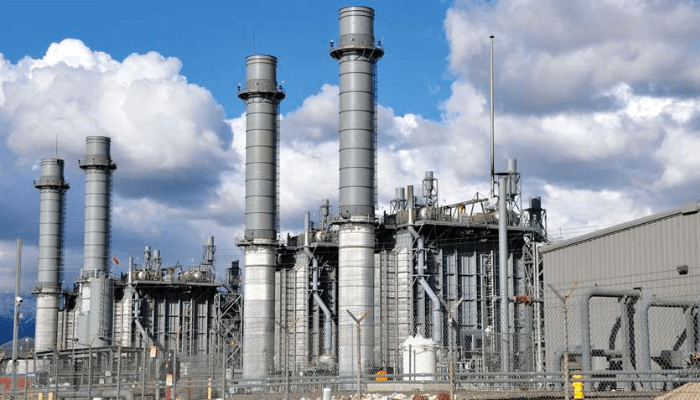Natural gas investment gets a leeway amid the talk of sustainability as the G7 countries threw their weight behind the resource on the back of the current energy crisis in the West and potential gas market shortfalls provoked by the Russia-Ukraine crisis.
A development that comes as a cherry for Nigeria, one of the largest producers of natural gas in Africa with the largest proven reserves of 209.26 trillion cubic feet.
Read also: Nigeria gas attracts as Europe sidesteps Russia
Their decision reflects a pragmatic approach to energy security and economic stability, recognising the importance of gas in meeting immediate global energy demands.
The G7, which comprises Canada, France, Germany, Italy, Japan, the UK, and the US, acknowledged the ongoing role of gas in stabilising energy supplies during the transition to greener alternatives.
“We recognise that restricting Russian energy revenues is an essential part of our support to Ukraine and are pursuing to end significant dependency on and to work on transitioning away from imports of Russian gas as soon as possible.
“In this context, we stress the important role that increased deliveries of Liquefied Natural Gas (LNG) can play and acknowledge that investment in the sector can be appropriate in response to the current crisis and to address potential gas market shortfalls provoked by the crisis.
“In the exceptional circumstance of accelerating the phase-out of our dependency on Russian energy, publicly supported investments in the gas sector can be appropriate as a temporary response,” the G7 said.
Read also: Shell Nigeria Gas considers powering 255MW electricity project
However, the G7 subjected the development to clearly defined national circumstances, if implemented in a manner consistent with their climate objectives without creating lock-in effects, “for example by ensuring that projects are integrated into national strategies for the development of low-carbon and renewable hydrogen.”
Analysts believe the G7’s backing will unlock billions of dollars in investment for Nigeria’s gas sector, which will not only boost the country’s economy but also create much-needed jobs.
They said the increased focus on gas could also lead to a reduction in Nigeria’s reliance on oil as a step towards achieving the “Decade of Gas” initiative of the federal government.
Elijah Wisdom, CEO/Founder of Creek Transitway Ltd, said this development means there will be more open investments in natural gas projects in Africa if part of it is targeted at supplying Europe, and Asia with natural gas.
He said: “Foreign investors want to know that with weakening local currencies in Africa (especially Nigeria), they need to find a way to earn in dollars too.
“For example, if there’s going to be a $1 billion investment, there should be a clear path that the infrastructure to be set up will cover some infrastructure to enable the export of LNG to these aforementioned continents.”
Elijah said that this is the time for Nigerian development and commercial banks to start backing early-stage natural gas solutions companies that have a clear path to profitability, and local and international market access goals.
“Because if they don’t it will be difficult to get this foreign funding which is larger for growth and expansion purposes. For example, about 70-80 percent of natural gas projects are infrastructure-based. So they need to support the best way they can,” he added.
Nigeria earned $40 billion in 2023 from gas sales, according to Nigeria LNG, out of which 49 percent went to the Federal Government of Nigeria courtesy of its shareholding in the company, via Nigerian National Petroleum Company (NNPC) Limited.
The country has invested and is still investing in various gas pipelines that will serve the domestic and international markets. One such project is the Trans-Saharan pipeline, a $13 billion endeavour spanning over 4,000 km from Nigeria to Algeria, seen as an opportunity to diversify the European Union’s gas supplies, which is diversifying from Russian gas.
Also, the Final Investment Decision (FID) on the $25 billion Nigeria-Morocco Gas Pipeline (NMGP) project will be taken in December 2024, according to Mele Kyari, Group CEO of the NNPC.
According to Kyari, the NMGP will assist in supplying gas to Morocco, 13 ECOWAS countries, and Europe, which will provide an avenue for other countries along the pipeline route to develop and export their gas.
In a chat interview with BusinessDay, Ayodele Oni, Energy Partner at Bloomfield Law Practice, said it is a positive signal and it is good everyone is realising that natural gas would be playing a more critical role in energy security.
“This should make financing much more available and encourage more non-Africans to invest in Nigeria and other African country gas sub-sectors.
“Nigeria and these African countries just need to ensure that there is a substantial improvement in the ease of doing business as that is the government’s primary role in business. Its role is to make it easy for businesses to do business more so in the gas sub-sector of the economy,” he added.
Nigeria is ranked 131 among 190 economies in the ease of doing business, according to the latest World Bank annual ratings. The rank of Nigeria improved to 131 in 2019 from 146 in 2018.
